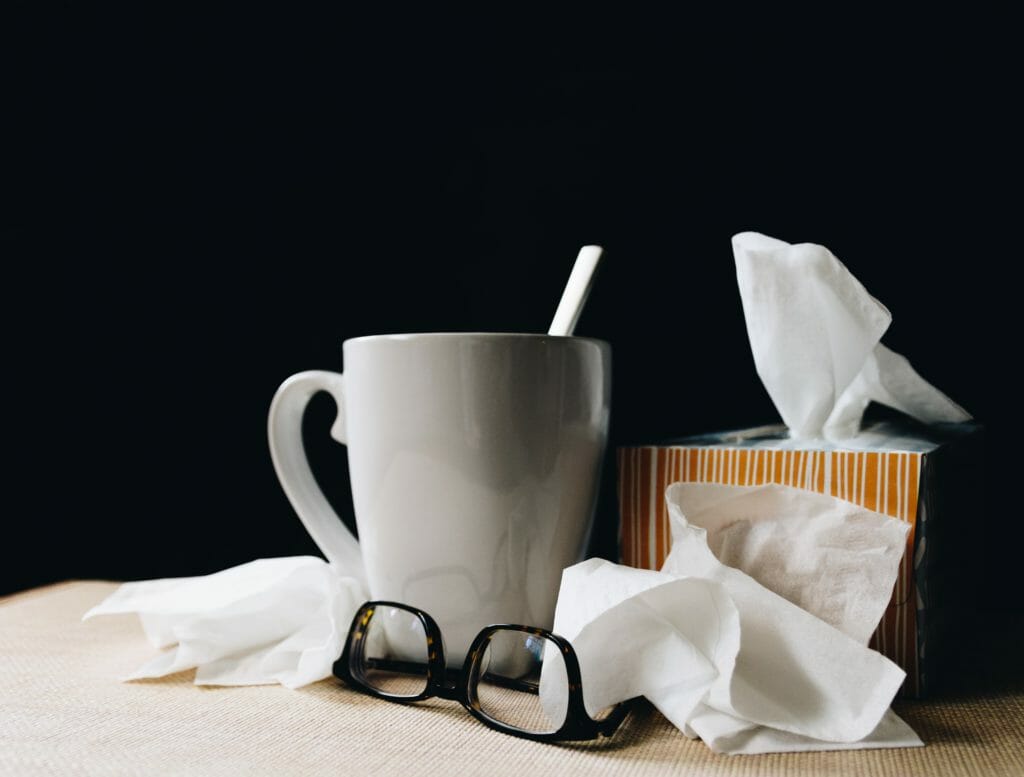What to Eat When You Have COVID
Eating a balanced diet rich in vitamins and minerals is vital in improving the immune system, giving your body a boost to quickly recover from infections, including Covid-19.
Inflammation and oxidative stress are linked to a poor diet, which limits your body’s immunological function.
While over-the-counter painkillers like Tylenol may temporarily reduce some of your symptoms, it’s equally crucial to provide your body with the nutritional meals it requires to aid in a full recovery.
Here are some suggestions for healthy anti-inflammatory and immune system-supporting meals to help you beat COVID-19.
Food To Eat When You Have Covid
Important food to consume for full recovery from Covid includes:
Fruits And Vegetables High On Vitamin C
Vitamin C is famous for its immune-boosting qualities. It is an effective antioxidant essential for the growth and repair of cells and tissues.
Vitamin C-packed foods include Kiwis, papaya, strawberries, oranges, grapefruit, cabbage, sweet potatoes, Broccoli, and Red bell peppers.
Aromatic Foods
Aromatic Foods include antibacterial and antiviral properties, boosting immunity and pleasing the palate. Allium family members are amazing Aromatic elements, including garlic, onion, scallions, leeks, shallots, and chives.
Adding freshly grated garlic to bone broth or soup improves the taste and aroma as well as benefits the body.
Protein Filled Dishes
When you are ill, your cells deteriorate. The best macronutrient for repairing your cells is proteinous food. Protein enhances the body’s ability to recover since it serves as the basis for all cells, including immune cells.
Great sources of protein are turkey and lean chicken. They also contain lots of zinc, a mineral that strengthens the immune system.
Some other great sources of protein include scrambled eggs, yogurts, protein shakes, tofu, lean beef, fish, and legumes.
While your normal protein go-to like chicken, fish, legumes, and peas may not be appetizing when you’re feeling under the weather, it is best to consume them since they are very helpful in fighting diseases such as Covid.
Chicken noodle soup with ginger and vegetable bits contains amazing nutrients that help to fight diseases while enhancing your fluid intake.
Herbs And Spices
A lot of these flavor enhancers are anti-inflammatory and rich in antioxidants. They may be helpful if your sense of taste is impaired or lost.
Season with strong flavors like garlic powder, onion powder, black pepper, cayenne, cumin, and cinnamon to boost your food taste. If you can take spice, cayenne, in particular, is a smart choice since it contains a lot of capsaicin, an anti-inflammatory compound that gives it its kick and might help lessen nasal congestion. Additionally, spices are fresh or dried herbs like low-sodium curry mixes, nutmeg, cloves, and fresh or dried ginger.
Hydrating Food
Hydration in moderation is absolutely essential for your body. In addition to liquids, which are the most obvious way to stay hydrated, most fruits and vegetables are also high in water content. Many also include minerals that act as electrolytes to keep the body’s fluid equilibrium.
Smoothies are amazing, especially if you want to maximize your nutrition and stay hydrated. You can add items like yogurt, nut butter, or protein powders for an extra nutrient boost and use fresh or frozen fruits and veggies.
Some of the best hydrating food include Citrus, watermelon, cucumber, lettuce, and berries.
Whole Grains
Your body needs healthy carbs to fuel the healing process. Whole grains are a great option because they also contain fiber, vitamins, minerals, and occasionally even a little protein. Some healthy, energizing foods are oats, bread, pasta, brown rice, fonio, Kamut, bulgur, potatoes, wheat, quinoa, and barley.
Omega-3 Packed Food
To recover from a condition like COVID and maintain your health while you’re still healing, consuming fatty acids is ideal.
Omega-3 sources such as powdered flaxseed, walnut, chia seed, sardines, salmon, herring, mackerel, and trout are highly anti-inflammatory.
Food with Abundant Vitamin D
Many people—especially those who reside in colder climates like the Midwest—are low in vitamin D, which supports your general immunological system. Egg yolks, milk, orange juice, salmon, or tuna are great sources of vitamin D.
What To Eat To Soothe Covid Symptoms

Photo Credit: Kelly Sikkema
Besides long-term recovery, there are times when you’ll crave instant relief. The following may lessen some frequent COVID symptoms, though they vary for individuals and variants :
For Fever:
Go for liquids with low-sugar contents, such as coconut water, hot or iced tea, still or sparkling water, low-sugar sports drinks, or rehydration drinks. A small amount of sugar can help the body absorb electrolytes like salt and potassium, which in turn aids in promoting water retention.
For Cough Or Sore Throat:
Smoothies, soups, curries, and stews are very comforting foods to consume when you have a cough or sore throat because they are nutrient-dense, immune-supportive, and full of flavor.
Mixing raw or Manuka honey with tea or plain hot water can relieve cough and sore throat. Additionally, honey has antibacterial and antifungal qualities for added infection-fighting ability and is a rich source of antioxidants.
For Diarrhea:
Increase your intake of soluble fiber, which absorbs liquids from the digestive tract and slows digestion. This category includes foods including oats, beans, barley, and apples.
For Vomiting Spells or Nausea
Go for bland foods that are simple to digests, such as bread, crackers, rice, and pretzels, and concentrate on little or snack-sized servings. Ginger may also aid in settling the stomach.
Avoid These Foods If You Have COVID
Most times, we are not kept in the loop on the kinds of foods that should be avoided if a patient has Covid.
Fortunately, we’ve gathered information on foods to avoid if you have Covid.
Stay Away From Packed and Processed Food:
Packed and processed foods tend to contain high amounts of salts, which can result in experiencing acidity and inflammation. Processed foods can trigger additional issues or symptoms, including nausea or stomach infections. WHO advises eating fresh foods that contain no more than five grams of salt daily. Additionally, since it could be contaminated or unclean, consuming food from packed and processed food should be avoided.
Limit Alcoholic Consumption and Smoking
Smoking, when infected, can cause respiratory issues, strokes, lower oxygen levels in the blood, and lung damage.
Avoid Drinks With Concentrated Sugar
Limit consumption of concentrated sugary juices and carbonated beverages in the hopes that they may energize the body; instead, sip warm vegetable soups, glucose water, fresh coconut water, or turmeric milk.
Conclusion
COVID-19 adversely impacts nutritional status, and a strong immune system is essential for lowering the risk of infection and promoting healing.
It is important to keep in mind that good food is essential in improving the immune system and fighting against illnesses.
Whole grains, protein, and abundant fruits and vegetables make up the ideal meal.
COVID puts your body under greater stress and requires more calories than you might regularly ingest because your body is fighting harder to combat the infection. Ensure to always eat even if your meals are not homemade.
However, it’s a good idea to avoid alcoholic beverages and foods that are heavy in sugar or sodium. Also, avoid highly processed foods with little nutritious value, such as candies, pastries, and chips.
Read more:


